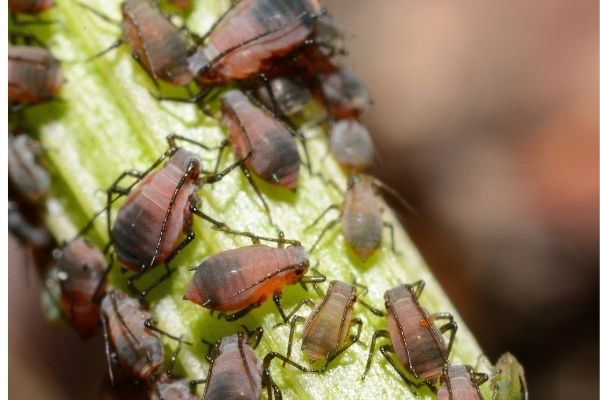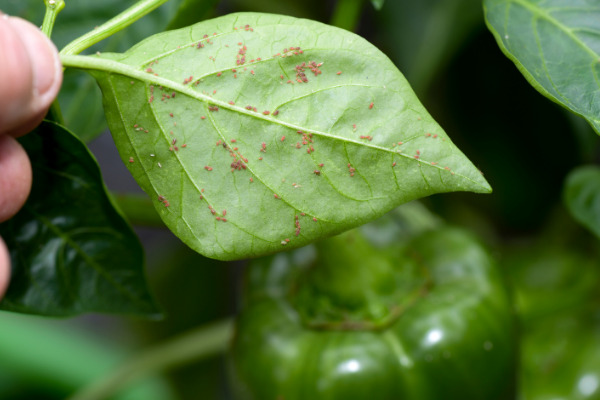Aphids on Roses
What are Aphids?
If you have seen small green bugs on roses in your garden, there’s a good chance that you have aphids. There are two species of aphids that attack roses, known as Macrosiphum rosae and Macrosiphum euphorbiae. These aphids are sap-sucking insects that attack roses and spread viral diseases between plants. Aphids are pests to Australian plants and roses, with over 175 species of aphids nationwide.

Aphids thrive in warm and moist environments, making many geographical areas in Australia prime locations for infestations. Aphid colonies grow very quickly and can cause serious problems for gardeners who don’t take measures to deal with the infestation.
What do Aphids do to your roses?
Aphids cause unwanted damage to rose bushes extremely quickly after the initial infestation. It is likely that gardeners will want to get rid of aphids on roses swiftly once noticed as waiting will cause further damage to your garden.
Aphids can harm your roses in two ways: by feeding on the roses directly, or by spreading viruses and disease to the rose bush itself. Both direct and indirect methods negatively impact roses, and cause headaches for gardeners. Additionally, aphids attract ants to your roses and can cause a build up of mould by regularly excreting sticky honeydew.

The presence of aphids or white bugs on roses can cause the roses’ leaves to become distorted and drop off. Aphids also cause rose seedlings and shoots to wilt, stunting future growth.
Protecting your plants
Killing aphids on roses is necessary for any gardener who wants their roses to flourish. Thankfully, there are a number of methods that help gardeners get rid of aphids and subsequently prevent the insects from returning.
How to get rid of aphids
The way in which you rid aphids from your roses will depend on the size of the infestation.
When the infestation is light and manageable, gardeners can simply pick off the aphids and discard them, or tap the rose stem and leaves to make the pests fall into a waiting bucket. Aphids that find themselves on the ground will become prey for the good insects in your garden, thereby helping your garden flourish in the long-term.
For larger infestations, you can spray your roses with water to knock the aphids off the plant. It is important that the water pressure is strong enough to remove the pests, whilst not strong enough that it damages the rose bush. It is a good idea to slowly increase the pressure of your hose until you find the perfect pressure that can remove the aphids. This method may have to be continued for a number of days to be successful.

Slow-release nitrogen fertilisers are a great way to get rid of aphids on roses, as aphids feed heavily on the nutrient. By restricting the quantity of nitrogen that is released at any given time, the aphids will be less attracted to the roses and more likely seek out other, more nitrogen-dense plants.
As a last resort, insecticide will also alleviate your pesky greenfly on roses problem. However, using insecticide will also kill the insects that help your garden.
How to prevent getting aphids
The best way to prevent your roses getting infested by aphids is to keep a close eye on the plants within your garden. Gardeners who have made it a habit to check their plants whilst watering, fertilising or gardening are less likely to be surprised by a large and difficult to control infestation. As a general rule, it is best to look out for clusters of insects, ants or sooty mould regularly.

In some cases, ants will protect aphids as they feed off their honeydew. It is important to be aware of any ant colonies in your garden and make sure their behaviour is normal. In contrast, other insects such as fly larvae and ladybirds will kill aphids. Planting flora that attracts aphids’ natural predators is a great preventative measure against the insects.
Don’t think you have aphids? See our Rose Pests blog to identify other pests such as white scale or thrips.
Help your roses flourish
Garden Express is the one-stop-shop for roses and rose care. Take a look at our wide variety of roses today.







Comments are closed.